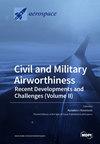A Multi-Objective Dynamic Mission-Scheduling Algorithm Considering Perturbations for Earth Observation Satellites
IF 2.1
3区 工程技术
Q2 ENGINEERING, AEROSPACE
引用次数: 0
Abstract
The number of real-time dynamic satellite observation missions has been rapidly increasing recently, while little attention has been paid to the dynamic mission-scheduling problem. It is crucial to reduce perturbations to the initial scheduling plan for the dynamic mission-scheduling as the perturbations have a significant impact on the stability of the Earth observation satellites (EOSs). In this paper, we focus on the EOS dynamic mission-scheduling problem, where the observation profit and perturbation are considered simultaneously. A multi-objective dynamic mission-scheduling mathematical model is first formulated. Then, we propose a multi-objective dynamic mission-scheduling algorithm (MODMSA) based on the improved Strength Pareto Evolutionary Algorithm (SPEA2). In the MODMSA, a novel two-stage individual representation, a minimum perturbation random initialization, multi-point crossover, and greedy mutation are designed to expand the search scope and improve the search efficiency. In addition, a profit-oriented local search algorithm is introduced into the SPEA2 to improve the convergence speed. Furthermore, an adaptive perturbation control strategy is adopted to improve the diversity of non−dominated solutions. Extensive experiments are conducted to evaluate the performance of the MODMSA. The simulation results show that the MODMSA outperforms other comparison algorithms in terms of solution quality and diversity, which demonstrates that the MODMSA is promising for practical EOS systems.考虑扰动的地球观测卫星多目标动态任务调度算法
近来,实时动态卫星观测任务的数量迅速增加,而动态任务调度问题却鲜有人关注。由于扰动对地球观测卫星(EOS)的稳定性有重大影响,因此减少对动态任务调度初始调度计划的扰动至关重要。在本文中,我们将重点研究同时考虑观测收益和扰动的地球观测卫星动态任务调度问题。首先建立了一个多目标动态任务调度数学模型。然后,我们提出了一种基于改进强度帕累托进化算法(SPEA2)的多目标动态任务调度算法(MODMSA)。在 MODMSA 中,设计了新颖的两阶段个体表示、最小扰动随机初始化、多点交叉和贪婪突变,以扩大搜索范围并提高搜索效率。此外,SPEA2 还引入了以利润为导向的局部搜索算法,以提高收敛速度。此外,还采用了自适应扰动控制策略来提高非主导解的多样性。为了评估 MODMSA 的性能,我们进行了大量实验。仿真结果表明,MODMSA在解的质量和多样性方面优于其他比较算法,这表明MODMSA在实际EOS系统中大有可为。
本文章由计算机程序翻译,如有差异,请以英文原文为准。
求助全文
约1分钟内获得全文
求助全文
来源期刊

Aerospace
ENGINEERING, AEROSPACE-
CiteScore
3.40
自引率
23.10%
发文量
661
审稿时长
6 weeks
期刊介绍:
Aerospace is a multidisciplinary science inviting submissions on, but not limited to, the following subject areas: aerodynamics computational fluid dynamics fluid-structure interaction flight mechanics plasmas research instrumentation test facilities environment material science structural analysis thermophysics and heat transfer thermal-structure interaction aeroacoustics optics electromagnetism and radar propulsion power generation and conversion fuels and propellants combustion multidisciplinary design optimization software engineering data analysis signal and image processing artificial intelligence aerospace vehicles'' operation, control and maintenance risk and reliability human factors human-automation interaction airline operations and management air traffic management airport design meteorology space exploration multi-physics interaction.
 求助内容:
求助内容: 应助结果提醒方式:
应助结果提醒方式:


